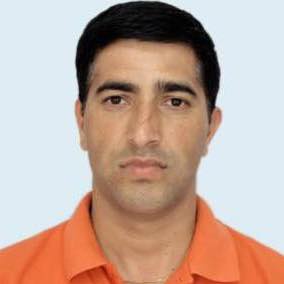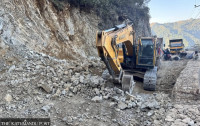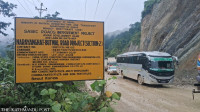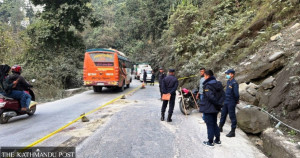Lumbini Province
Office of Kaligandaki-Tinau Diversion Multipurpose Project established in Butwal
After the completion of the project, the water flow in Kaligandaki river will decrease by 40 percent, which will affect around 300,000 people in several districts.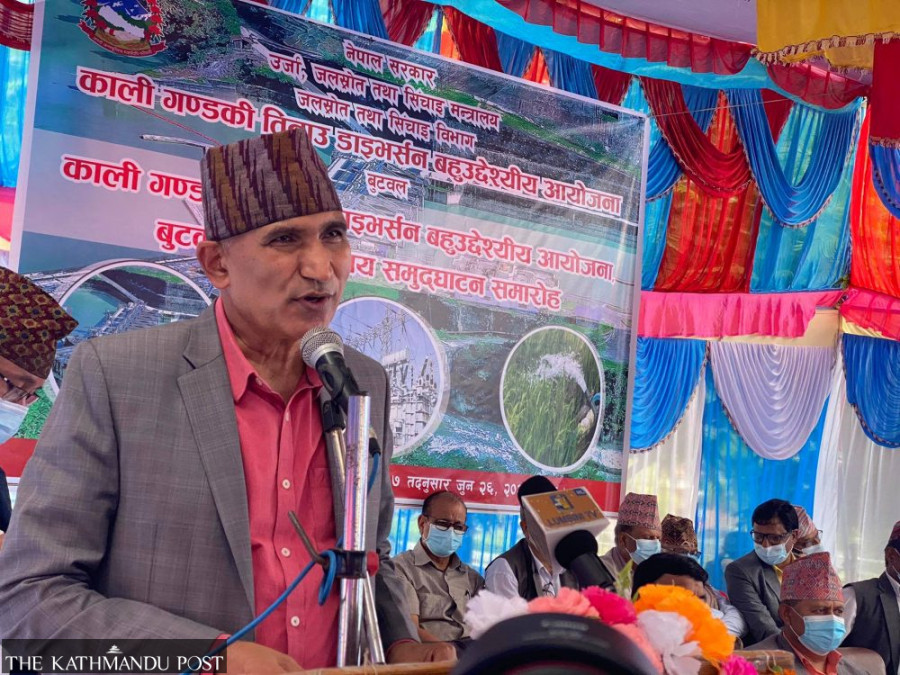
Ghanashyam Gautam
The office of the much-awaited Kaligandaki-Tinau Diversion Multipurpose Project has been established in Butwal. Bishnu Paudel, deputy prime minister who is also the finance minister, inaugurated the project office in Butwal on Saturday.
The project envisions irrigating 54,000 hectares of land in Kapilvastu and 53,000 hectares in Rupandehi and producing 126 MW electricity by diverting the water of the Kaligandaki river to the Tinau through a 38 kilometre-long tunnel. The estimated cost of the project is around Rs 138 billion.
“The flow of water will increase in Tinau after the water from the Kaligandaki is diverted. We will be able to irrigate thousands of hectares of land in Rupandehi and Kapilvastu districts,” Paudel said during the inauguration programme on Saturday. “This is a game-changing project for Lumbini Province.”
However, the Gandaki provincial government has been protesting the construction of the Kaligandaki-Tinau Diversion Multipurpose Project.
“The construction work of the project will move ahead by coordinating with both the Gandaki and Lumbini provincial governments,” Paudel claimed.
According to the Kaligandaki-Tinau Diversion Multipurpose Project Office, the Kaligandaki diversion dam will be constructed at Pipaldanda in Rambha Rural Municipality Ward No. 3 of Palpa.
The Detailed Project Report will be prepared within a year, according to the office. Hydro Consult JV, the contractor company from Kathmandu, had conducted a feasibility study before the establishment of the office.
Ten local units in Palpa of Lumbini Province and Syangja and Tanahun of Gandaki Province will be affected by the multi-purpose project. The project aims to divert the water of the Kaligandaki river from Ramdighat in Syangja to the Tinau river. According to residents of Devghat, the project would greatly affect the ecosystem of the area, its population and even the existence of Devghat—a revered place for Hindu pilgrims.
According to Shanta Bahadur Shrestha, a former government secretary, after the completion of the project, the water flow in the Kaligandaki river will decrease by 40 percent, which will affect around 300,000 people from 10 local units in Tanahun, Nawalparasi (East) and Syangja.
“The religious and tourism industry in the lower Kaligandaki river bank area will crumble after the completion of the project. The project is against the ecology and the principles of natural justice,” said Raman Bahadur Thapa, mayor of Rampur Municipality in Palpa district.




 20.12°C Kathmandu
20.12°C Kathmandu